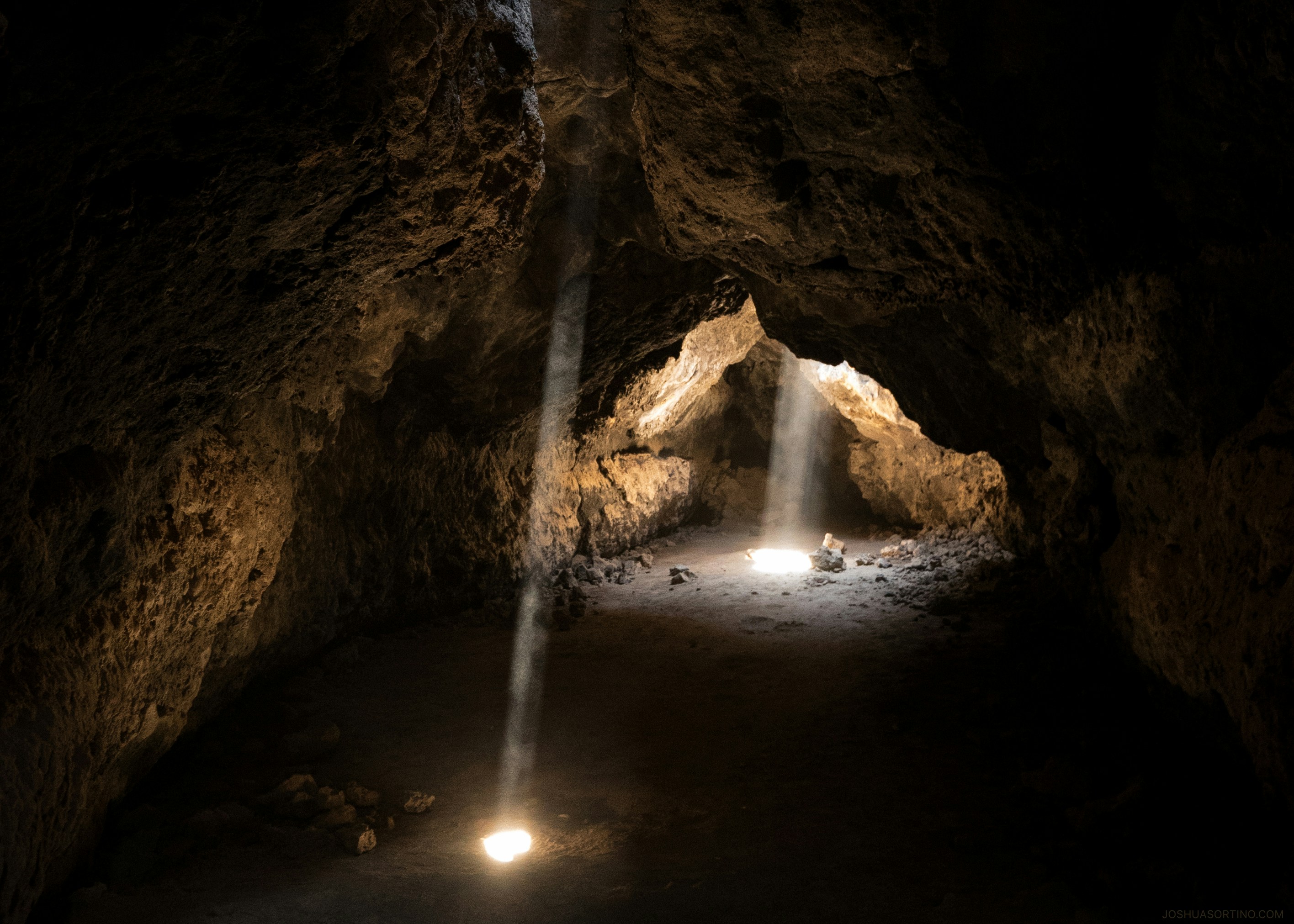A maskil of David. When he was in the cave. A prayer.
1 I cry aloud to the Lord;
I lift up my voice to the Lord for mercy.
2 I pour out before him my complaint;
before him I tell my trouble.
3 When my spirit grows faint within me,
it is you who watch over my way.
In the path where I walk
people have hidden a snare for me.
4 Look and see, there is no one at my right hand;
no one is concerned for me.
I have no refuge;
no one cares for my life.
5 I cry to you, Lord;
I say, “You are my refuge,
my portion in the land of the living.”
6 Listen to my cry,
for I am in desperate need;
rescue me from those who pursue me,
for they are too strong for me.
7 Set me free from my prison,
that I may praise your name.
Then the righteous will gather about me
because of your goodness to me.
This psalm is a lament. Forty percent of the psalms are lament. In contemporary church life, we don’t sing laments, we only want to sing happy songs. We don’t like laments because we don’t want to probe the deeper feelings that loss and trials bring. There are consequences to this for the church and for each of us as persons. Even when we go to funerals we just want to focus on the celebration of life, and whilst that is good, we need also to have integrity to the grief we feel in our great losses. Just a few thoughts of comfort from this lament psalm, which is a lament, not specifically for losses of a loved one. In it David is mourning a deep relational loss, however. Saul, who had once called him “Son,” is now hunting him down. This is a lament which has feelings in it that we can easily apply to any loss. Loss of a job, loss of a pet, loss of an opportunity we cherished, loss of a familiar home setting to take on new challenges, including coming to Regent. This kind of lament speaks powerfully into our situations of adversity, shock, and grief.
The first thing I observe about this lament is that it has a lonely element to it. Look at the place where David finds himself. The title of the psalm indicates it was uttered “When he was in a cave.” This is a cave lament. There are two "cave Psalms": this one and Psalm 57. Fifty-seven is more triumphal; this one not so much. And David certainly felt very alone, as verse 4 indicates: “Look to my right and see; no one is concerned for me. I have no refuge; no one cares for my life.” We often feel alone when we lose a loved one. It is always unexpected even when we are expecting it.
David had heard great promises from God about where he would be one day—in a palace. But unexpectedly, right now he finds himself in a cave being pursued by Saul. In my final year of high school, I was on an outward bound type leadership course in the Chimanimani mountains of Zimbabwe. One day we climbed a very steep slope and at the end of the day came to a plateau and the headmaster said, “Right boys, you are on your own now. Each of you must find a cave and sleep there tonight.” The caves had many berg adders and before we could rest in them, we had to clear them of these venomous snakes. We were being asked to be alone with our fears. I can assure you I didn’t sleep much. My cave spirituality kicked in. I prayed like crazy most of the night. The greatest danger in the cave of loss is denial, the failure to face our loss and grief. An old Turkish proverb goes like this, "He who conceals his/her grief finds no remedy for it." Cave spirituality is the process of our affections.
Cave spirituality is the process of our affections.In great losses, some of the grief work can only be done alone. C.S. Lewis, who wrote A Grief Observed after the loss of his wife, once said he thought all grieving people should be locked up for a year because it’s awkward for the griever who can break down at any time, and awkward for those encountering them. Not all cultures see it that way. Perhaps a better reason for suggesting there is alone work, soul work, to be done in the cave of our losses, is the idiosyncratic nature of our losses. Well-meaning, would-be comforters might say, “I know what you are going through.” The truth is they don’t, not exactly. There is community in grief but there is also a very personal nature to grief, because nobody else knows the particularities of our grief. There is a certain particularity about grief, a "thisness." But here is the comfort in the cave: the God of all comfort who does know the intimate depths of our sense of loss and grief. The juxtaposition of two statements about God in consecutive verses in Psalm 147 comforts us: He “who determines the number of the stars and calls them each by name” (v. 4), is the same God who “heals the brokenhearted and binds up their wounds” (v. 3). Our Great High Priest is touched with the feeling of your infirmities. Cave spirituality involves receiving from him.
There is a second aspect to cave spirituality in this psalm: we are given permission to lament with intensity, with loudness. Lament can oscillate between loudness and whimpers. Laments reflect the turbulence of the wounded and frightened heart: it is sometimes loud. Three times, in verses 1, 5, and 6, the psalmist uses the word “cry aloud” or “cry out.” We cry out with our voices, without hearts, and sometimes with wordless groans. Although we must reverence God, God gives us permission to be emotionally honest in his presence about how we feel—our hurt, our shock, our loneliness, our empuzzlement, our anger. Laments are loud because they come from deep within or wounded souls, they are deeply visceral—v. 2 “I pour out my complaint.” This is not whining, as Kidner states. It refers to “troubled thoughts.” Spirituality is not the denying of emotions but the owning of emotions in the presence of God. Spurgeon: “It is not merely words that you have to utter, you have to lay all your troubles before God. As a child tells its mother its griefs, tell the Lord ALL your griefs . . . tell them all out and great relief will come to your spirit.” But sometimes when our strength is spent being loud, our lament may spiral down into a whimper: “When my spirit grows faint within me, it is you who knows my way” (v. 3)! Allow yourself words and sometimes no words. “Be gentle with yourself,” was some of the best advice I received in my own grieving journey. And be prepared for fatigue like you’ve never known it before.
Spirituality is not the denying of emotions but the owning of emotions in the presence of God.Thirdly, lament has moments of lucidity when divine truth dawns on us, when the presence of Yahweh suddenly becomes real, when perspective returns. Though his spirit is still faint, David remembers that God knows his path from beginning to end; he knows what he can handle; he knows the end of the story: “When my spirit grows faint within me, it is you who know my way” (v. 3). Though still in the cave, he rediscovers that God is his safety, his refuge (v. 5). Though still crying out to God, it dawns on David that Yahweh is his portion (v. 5). As a fugitive he had lost his portion, but here in the midst of lament he becomes more deeply aware than ever before that God is his portion. God and not his role as king; God and not his popularity with the people; God, even when all his props have gone.
Though still in the cave, something else dawns on him: along with the realization that Yahweh is his God, comes the further realization that God’s community is there for him (v. 7). Kidner comments: “In the event, it seems that God answered abundantly, soon sending David's "brothers and all his father's house" to join him in his cave, and then by degrees a company that would become the nucleus of his kingdom (1 Sam. 22:1f.). This low ebb in his fortunes proved in fact to be a turning point. In new covenant territory, we have Christ and Christ has us, and with him every spiritual blessing, including his church, his community of care. Though still with a great sense of vulnerability, David ends this lament in praise (v. 7). The psalm moves from complaint in verse 1 to praise in verse 7; from isolation in verse 4 to community in verse 7. Not praise for the trial, but praise somehow within it.
May you find the courage for lonely and communal, loud and quiet lament, and may lucidity penetrate the mystery from time to time.

